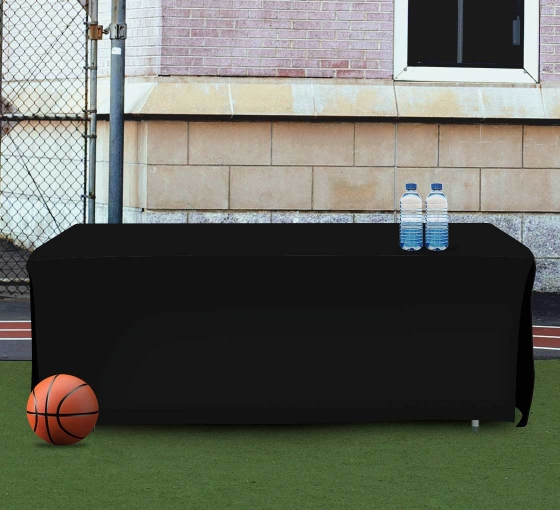After the festivities of Environment Day, it’s essential to store biophilic themed signage properly to ensure it can be reused in future events. This type of signage, which incorporates nature- inspired design and eco-friendly materials, requires specific care and maintenance to preserve its aesthetic and functional qualities. Here are some detailed tips for effective storage to keep your biophilic signage in sound condition.
The rise of biophilic design in signage is more than just an aesthetic choice; it reflects a growing awareness of the importance of integrating nature into our everyday environments. By incorporating indoor natural elements like living plants, natural wood, and eco-friendly materials, biophilic signage creates a connection to the natural world, even within indoor spaces.

This connection can enhance the atmosphere of any environment, from workplaces to retail spaces, making them more inviting and promoting a sense of well-being. As we celebrate Environment Day and beyond, it’s crucial to consider how we can maintain and store these beautiful and meaningful designs to ensure their longevity and continued impact.
1. Clean and Maintain
Proper maintenance starts with cleaning the signage to remove any dust or debris accumulated during the event. Each type of biophilic signage requires specific cleaning techniques:
Custom Neon Signs and Acrylic Signs
- Surface Cleaning: Use a soft cloth to wipe down the neon sign’s surface, removing any dust or grime. For acrylic signs, a mild soap solution can be used for a deeper clean. Avoid abrasive cleaners or rough cloths that might scratch the acrylic.
- Damage Check: For neon flex signs, inspect for any damage to the flexible tubing, such as cuts or areas where the light is dim or not functioning. Address any electrical issues promptly, ensuring all connections are secure and the power source is functioning correctly.
Wooden and Organic Material Signs
- Dry Thoroughly: Make sure signs made of wood or other organic materials are dry to prevent mold or mildew growth. Wipe them down with a dry cloth and let them air out before storage.
- Check for Damage: Inspect for any cracks, splinters, or other damage. Repair these issues to prevent further deterioration during storage.
2. Disassemble if Possible
Disassembling signage can save space and reduce the risk of damage. Here’s how to handle different types of signs:
Modular Signs
- Label Components: If the signage is modular, carefully disassemble it and store the components in labeled boxes or bags for easy reassembly.
- Store Hardware Separately: Keep screws, bolts, and other hardware in a labeled container to prevent loss.
Large Wooden Signs
- Break Down: For large wooden signs with detachable parts, break them down into smaller pieces. This makes them easier to store and transport without risking damage.

3. Use Proper Storage Containers
Invest in suitable storage containers to protect your signage:
General Signage
- Plastic Bins: Use sturdy plastic bins with tight-fitting lids to protect most signage components from dust, moisture, and pests.
- Padded Containers: For delicate items like neon signs, consider using padded containers or custom foam inserts to prevent breakage.
4. Climate Control
Storing signage in a climate-controlled environment is crucial to prevent damage from humidity, temperature fluctuations, and pests. Here’s why it’s important:
Wooden and Organic Materials
- Prevent Warping and Mold: Wooden signs can warp or grow mold if exposed to damp conditions. A stable, dry environment prevents these issues.
Neon Signs
- Temperature Stability: Neon flex signs are sensitive to temperature changes, which can affect their performance and longevity. Extreme temperatures can cause the flexible tubing to become brittle or lose its shape. Maintaining a consistent temperature helps preserve the integrity and appearance of neon flex signs.
5. Regular Checks
Periodic inspections are essential to ensure the stored signage remains in good condition:
Schedule Inspections
- Monthly or Quarterly: Set a schedule for routine checks, such as every month or quarter. This helps you catch any issues early.
Wooden and Neon Signs
- Inspect for Damage: Look for any signs of damage or wear, such as cracks, rust, or electrical issues. Address these problems to prevent further deterioration.
6. Label Everything
Labeling all parts and storage containers helps keep everything organized and makes it easier to find and reassemble signage when needed. Clear labeling also ensures that anyone who handles the storage and reassembly process can do so efficiently, without confusion.
7. Document Assembly Instructions
Keep a document with assembly instructions and photos for complex signage. This ensures anyone can reassemble the signage correctly, even if the original assembler is unavailable. Detailed instructions can save time and reduce frustration when setting up for the next event.
8. Invest in Quality Storage Solutions
Investing in high-quality storage solutions may have a higher upfront cost, but it pays off by extending the lifespan of your signage and reducing the need for replacements. Durable containers, climate control systems, and protective padding can all contribute to better preservation of your biophilic signage.
9. Consider Professional Storage Services
For particularly valuable or delicate signage, consider using professional storage services. These services often provide climate-controlled environments, advanced security, and expert handling to ensure your signage remains in excellent condition. This option can be particularly useful for businesses that do not have the necessary storage facilities on-site.
Conclusion
Proper storage of biophilic themed signage post-Environment Day is crucial for preserving its beauty and functionality for future events. By following these detailed tips for cleaning, maintaining, disassembling, and storing your signage, you can ensure it remains in excellent condition and ready for reuse.
Embracing biophilic design in signage not only enhances the aesthetic appeal and promotes environmental well-being but also aligns with a commitment to sustainability. Effective storage practices further this commitment by maximizing the longevity and usability of your eco-friendly signage solutions.
As we look forward to future Environment Day celebrations and other events, taking the time to care for and properly store these signs ensures they continue to inspire and engage. By investing in proper storage, you’re also investing in a healthier, more sustainable future.
Written By BannerBuzz Editorial Team
























 Posted in
Posted in 







